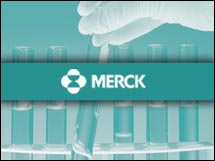|
Merck's other big problem: Zocor
Besides the Vioxx trials, the drug giant faces impending loss of patent protection on its top selling cholesterol drug Zocor.
NEW YORK (CNNMoney.com) - Merck's big problem in 2006 isn't just Vioxx. It's Zocor. Merck announces earnings on Tuesday morning, and is expected to report a 2 percent drop in fourth-quarter sales, with a decline of 5 percent for 2005, according to consensus estimates from Thomson Financial. Looking ahead, the New Jersey-based druggernaut faces a raft of challenges before it can get its revenue growing again.
Merck faces nearly 10,000 lawsuits stemming from its arthritis painkiller Vioxx, which the company pulled off the market in September 2004, after a study showed an increased risk of heart attacks and strokes in patients using the drug for more than 18 months. Proceedings in the fourth lawsuit began last week in a rural Texas courtroom, and so far Merck has racked up one loss, one win and one mistrial. The Vioxx debacle has dominated headlines, with projections for legal damages ranging as high as $50 billion. Meanwhile, the looming patent loss of Zocor, the company's top-selling drug, could take a mighty chunk from Merck's books in 2006. Analysts estimate the company could see a drop of as much as $2 billion in sales this year as a result. Sales for Zocor, a statin that lowers cholesterol, totaled $3.3 billion during the first nine months of 2005. The company has projected total Zocor sales of $4.2 billion to $4.5 billion in 2005. This is down from the 2004 tally of $5.2 billion. By comparison, Merck sold $2.5 billion worth of Vioxx in 2003, its last full year of sales. Zocor's patent protection is expected to run out this June. Indeed, 2006 is a particularly bad year for branded drug makers, and a particularly good one for generic makers, with an estimated $21 billion in drugs going off-patent, according to Andrew Forman, analyst for WR Hambrecht & Co. Forman projected that $100 billion worth of name-brand drugs will go off patent through 2010. Merck (Research) can still make and sell Zocor after patent loss, but it would no longer factor as a key driver to corporate sales. After a branded drug loses protection, the price typically plunges about 40 percent during the first six months, followed by another 40 percent plunge after that. "2006 revenue and earnings will be down from the prior year because of Zocor," said Barbara Ryan, analyst for Deutsche Bank North America. "It's only after that the revenues will grow, albeit modestly, because they'll have absorbed the hit [from Zocor] in 2006 and then after that they'll introduce new products, the most significant of which will be Gardasil." Merck expects to garner sales in the near future from three vaccines filed with the FDA: Gardasil for prevention of cervical cancer, Zostavax for shingles and Rotateq for rotavirus in children and babies. Projections for Gardasil sales overshadow the other two drugs. Gardasil generated much excitement late last year: on Oct. 7, Merck unveiled a study showing that the experimental vaccine has 100 percent efficacy in preventing the sexually transmitted human papillomavirus, which causes 70 percent of cervical cancer cases. Cervical cancer kills nearly 300,000 women worldwide every year. On Dec. 16, 2005, Merck revealed another Gardasil study, showing 100 percent efficacy in preventing the sexually transmitted viruses that cause 90 percent of vaginal and vulvar lesions in young women, including genital warts. Merck filed Gardasil with the FDA on Dec. 1, and under a best-case scenario the agency would complete its review by the time Zocor loses its patent. Ryan, the Deutsche Bank analysts, believes Gardasil will be the company's next blockbuster. Assuming FDA approval of the vaccine, Ryan has projected $100 million in sales during its debut year of 2006, rising to $600 million in 2007 and $1.2 billion in 2008. The analyst said that the Gardasil-dominated pipeline, and the company's cost-cutting efforts, have caused her to maintain her "buy" rating. Also in 2006, the company also plans to file three new drugs with the Food and Drug Administration: Januvia, a treatment for type 2 diabetes; Vorinostat, a cancer treatment; and MK-517, an intravenous medicine to treat chemotherapy-induced nausea and vomiting. Merck is also tightening its belt. The company unveiled plans in December to slash up to $5 billion in costs by axing 7,000 jobs and closing or selling five drug-making plants. As for Vioxx, the company's real pain could still be years away, affecting only the long-haul investors. "I think people are coming to the realization that this is going to be a marathon that's going to be running for a period of time and [Merck is] unlikely to pay any money out over the next few years," said Ryan. Ryan does not own Merck stock, though Deutsche Bank does conduct business with them. -------------------------------------------------
Merck says it's ready for a biotech buying spree. Click here. |
|

